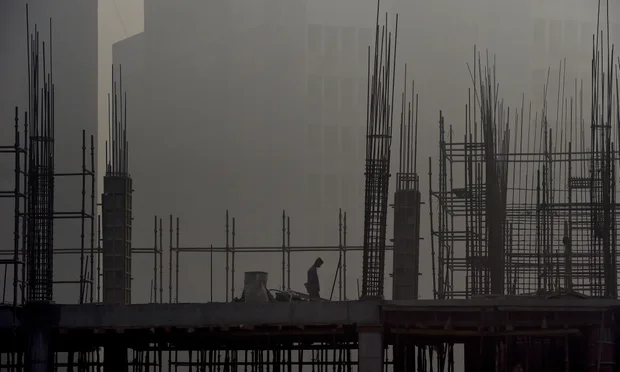BMC Targets 28 Construction Sites Over Air Pollution Issues
In a significant move aimed at controlling the rising levels of air pollution in Mumbai, the Brihanmumbai Municipal Corporation (BMC) has issued notices to 28 construction sites for failing to comply with its stringent pollution control guidelines. The BMC’s crackdown comes in the wake of increasing concerns over the city’s deteriorating air quality, primarily exacerbated by dust and particulate matter from ongoing construction activities.
As part of its ongoing efforts to tackle the escalating pollution levels, the BMC administration has implemented a set of guidelines that mandate construction sites to adopt measures to curb air pollution. These measures include ensuring dust control systems, proper site management, and the use of protective covers to prevent debris from becoming airborne. The guidelines were first introduced in the previous year, in response to growing evidence that construction activities are a major source of pollution in the city. Following directives from BMC Commissioner Bhushan Gagrani, municipal teams have been actively monitoring compliance across the city’s 24 administrative divisions.
On December 20, 2024, the BMC dispatched inspection teams to 868 construction sites in a single day, with written notices issued to 28 non-compliant sites. The BMC has made it clear that further non-compliance will result in stronger punitive actions, including the potential for stop-work notices or even sealing the sites. The BMC’s swift action highlights the urgency with which the corporation is addressing air pollution concerns. As part of its strategy, the corporation has deployed teams to inspect various construction sites and ensure that all projects are following the prescribed pollution control measures. Additionally, the municipal body has partnered with technological solutions such as the ‘Auto DCR’ online system to streamline communication and enforcement.
Experts have long pointed out that construction dust is one of the most significant contributors to Mumbai’s air pollution crisis, and the BMC’s latest initiative is expected to play a crucial role in mitigating the harmful effects. However, industry stakeholders have expressed concerns about the feasibility of immediate compliance, urging a more collaborative approach to balance development and environmental sustainability. The BMC’s ongoing enforcement of these pollution control regulations underscores its commitment to improving air quality and reducing the health risks associated with exposure to high levels of particulate matter. With Mumbai facing a growing challenge of urbanisation, construction site regulation will remain a key focal point in the city’s battle against pollution.


